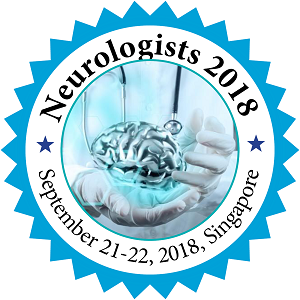
Sakshi Chopra Gupta
All India Institute of Medical Sciences, New Delhi, India
Title: Neuropsychological rehabilitation after traumatic brain injury: Evidence of neuroplasticity through functional imaging
Biography
Biography: Sakshi Chopra Gupta
Abstract
Neuropsychological or cognitive rehabilitation has expanded in the last decade and there is growing evidence in favor of neuroplasticity in the damaged brain. Neuroplasticity describes lasting change to the brain, even after injury. Behavioral, environmental and cognitive stimuli can cause neuroplastic change, which has significant implications for recovery after brain injury. Modulation of synaptic transmission and synaptogenesis, the staple mechanism of neuroplasticity in development, maturation and learning, is also assumed by most to underlie functional recovery in the damaged system. Functional brain mapping along with neuropsychological assessments can provide an objective evidence of the deficits, and improvements after injury to the brain. Functional Magnetic Resonance Imaging (fMRI) and connectivity data can give some information on the recovery from deficits after a Traumatic Brain Injury (TBI).
Forty seven consenting patients from a randomized controlled clinical trial within one month post Mild or Moderate TBI were randomly assigned to the control group (CG) or intervention group (IG). Patients were evaluated on neuropsychological measures and fMRI tasks. fMRI paradigm was given using a 1.5 MRI Tesla scanner using Superlab and binocular camera with eye-tracker. A 6-week literacy free cognitive rehabilitation intervention was administered on the IG which included retraining in areas of visual short term, long term memory; focussed and divided attention; planning and visuo-spatial ability and relaxation techniques.
Pre-post analysis showed improvements in both the groups; but a more significant improvement in the IG in cognitive functioning; anxiety; depression; and quality of life, immediately and at the sixth month follow-up. FMRI findings demonstrated retrieval of visual memory processing and significant working memory association post intervention.
Specific activations pre and post cognitive interventions can provide valuable information for cognitive recovery after brain injury, and may contribute to guide clinicians for specific biomarkers for rehabilitation. Functional imaging can not only provide the link between cognitive rehabilitation and plasticity in future, but also neuroplasticity after injury, in larger cohorts.

